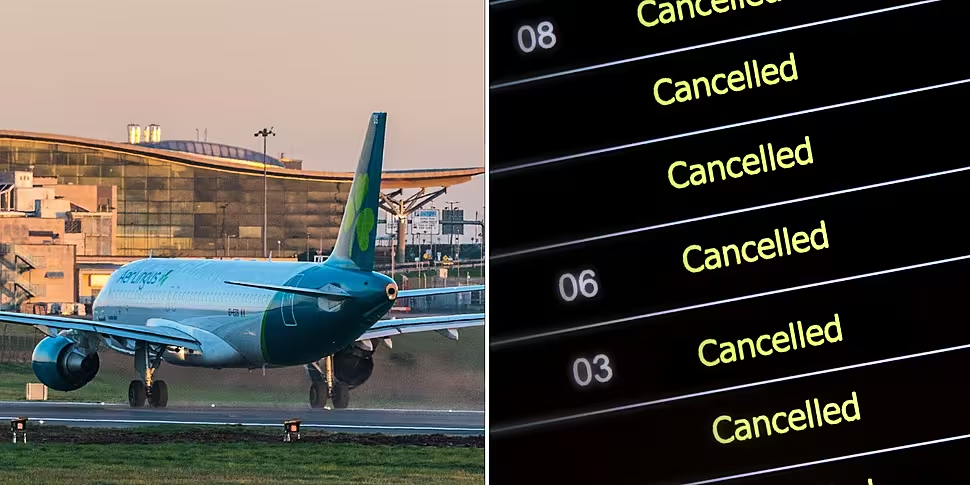Carriers who cancel flights at short notice can be required to compensate passengers.
Travel expert Eoghan Corry told Lunchtime Live rights are clearly set out under the EU261 directive.
"Up to two weeks in advance they can cancel without any penalty or without any consumer rights implications.
"After two weeks, they really have to watch what they cancel - because cancelling at short notice, they can be required to pay compensation and also to face out-of-pocket expenses.
"You do have compensation rights if it falls outside of what is regarded as extraordinary circumstances by the airline".
He says about 27% of flights have been cancelled at less than six hours notice.
"In Aer Lingus' case, it's the crew having a COVID illness - sometimes it's a tech failure.
"TUI - the big tour operator - have had a bit of a problem with three of their aircraft in hospital in the last month or so.
"But generally you get more than the six hours notice.
"Airlines will always be in a position, if something goes wrong, that they're going to have to cancel at short notice.
"They've a very clear, defined set of obligations - and it's set out by the hour: cups of coffee, phone calls.
"It goes all the way up to overnight, and it goes up to compensation as well if it's not extraordinary circumstances.
"So being cancelled at short notice, the airline has a duty to get you to where you're supposed to go.
They're generally good at that, they're getting most of the people there within the 24 hours.
"We are doing well in Ireland - the airport has not mandated cancellations the way Heathrow and Amsterdam did.
"More than 98% of our flights are running, which is good by European standards".









